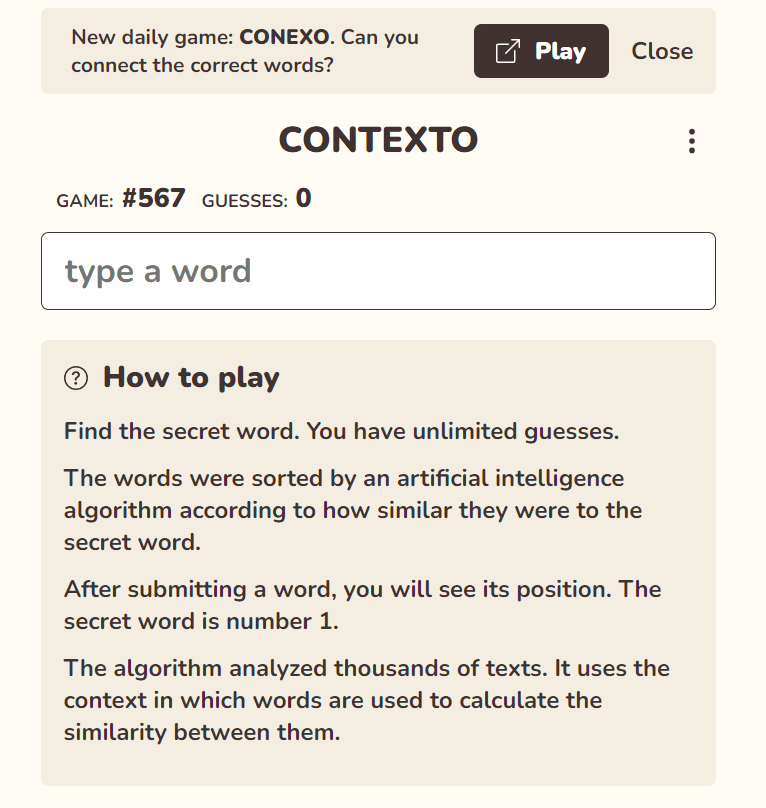The game I currently love the most is a simple Wordle/Semantle derivative known as Contexto. In the game, you must guess a target word ranked at 1 by continually guessing other words, where the game reveals to you what rank your guess is in relation to the target. In my opinion, Contexto operates primarily on the aesthetic of challenge.
In terms of mechanics, we have unlimited guesses and open input, contextual similarity feedback, and daily reset. Players can guess any word, with no limits on attempts, which opens up comprehensive base-covering possibilities and strategic choices. Then, each guess receives numerical feedback that shows how contextually similar it is to the target word. Lower numbers indicate closer similarity, guiding players on how close they are to finding the target word and winning the game. Finally, the game resets daily with a new target word, maintaining a consistent challenge and preventing mastery from one day affecting the next.
These mechanics influence the following game dynamics: strategic exploration (where the freedom to guess any word encourages players to explore words not just for direct meanings but for their broader contextual association), learning/adaptation (as the feedback from each guess helps players improve their strategies, adapting their thinking based on previous results), and difficulty that has the possibility of increasing since the challenge intensifies with each guess, especially if players do not seem to be progressing towards the target word.
These mechanics and dynamics ultimately create a consistent loop of guesswork, feedback, and adaptation that keeps Contexto engaging and makes the ongoing challenge deeply rewarding and very fun. Players get enticed by the tension of trying to guess the right word, the satisfaction of adapting and improving with each guess, and the ultimate thrill of discovery when they finally guess the target correctly.



